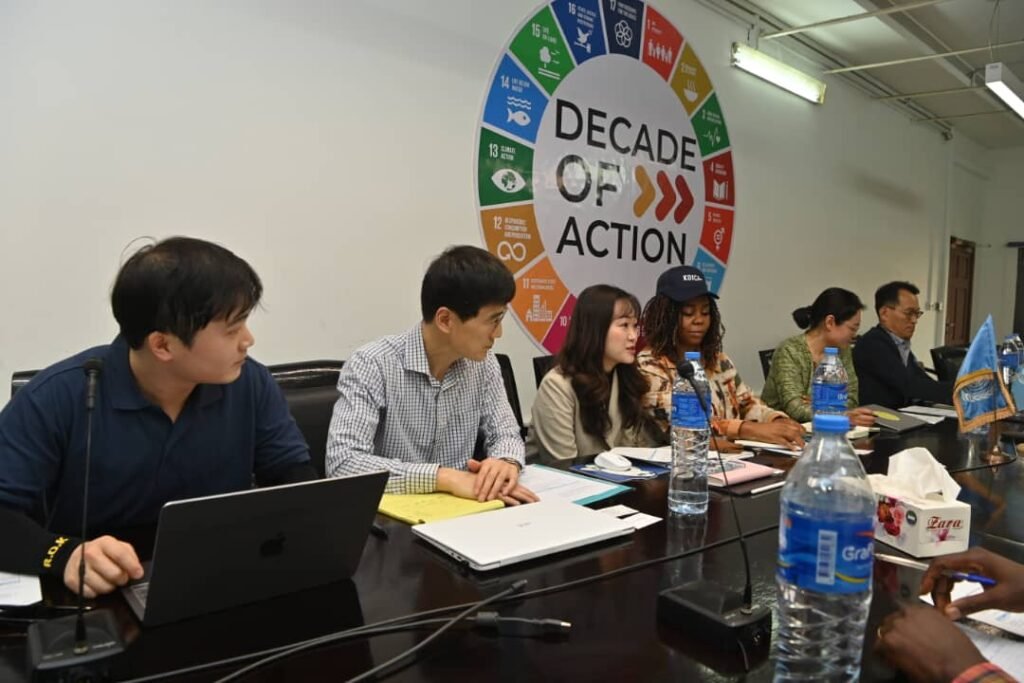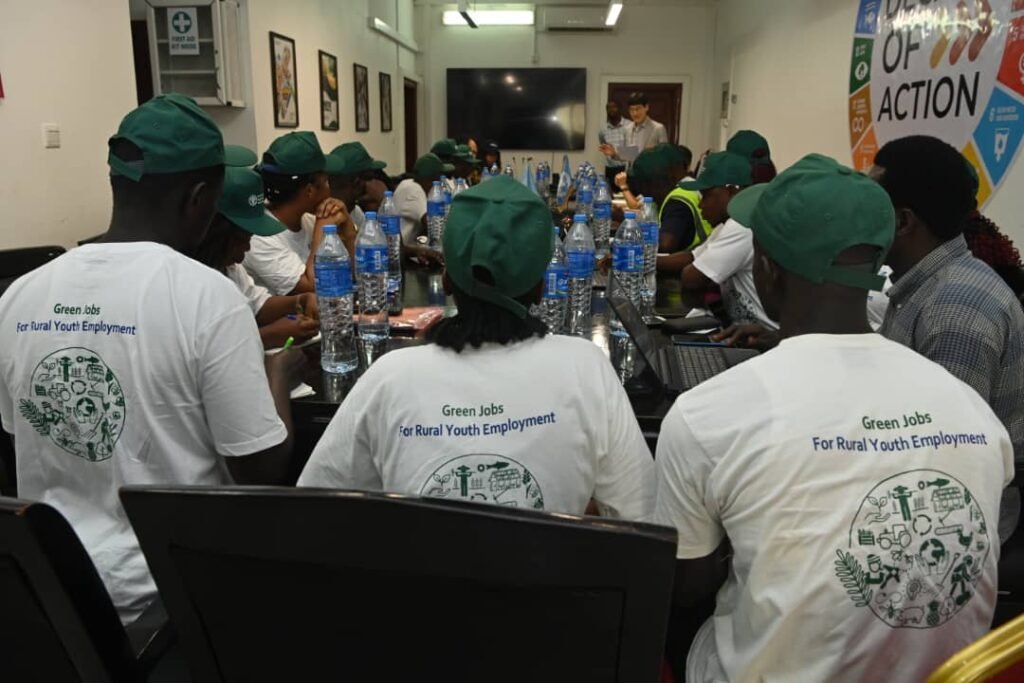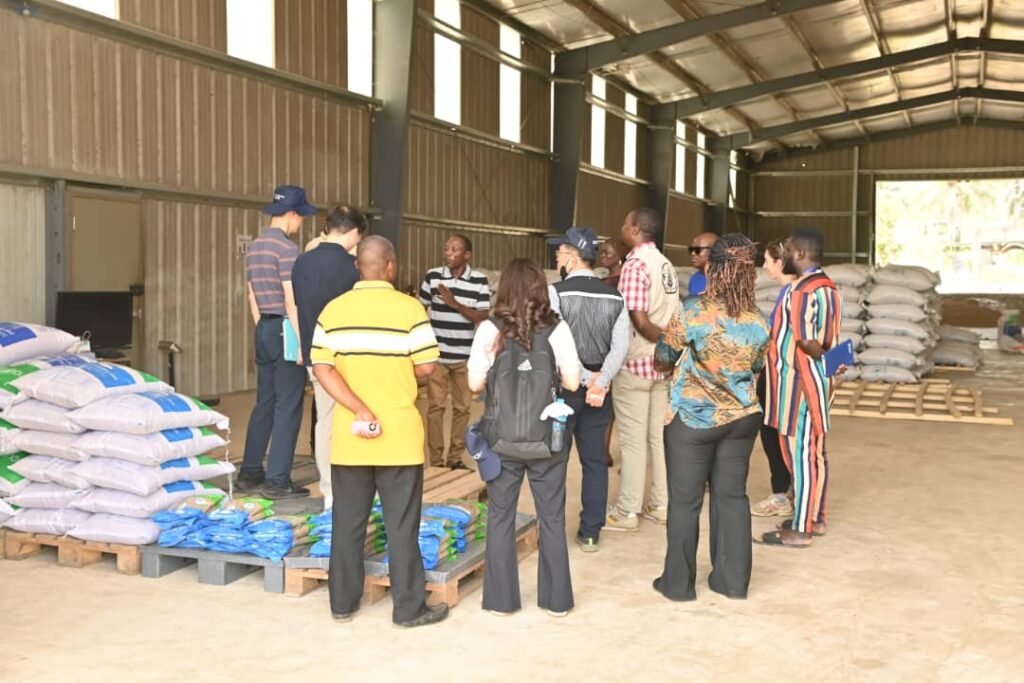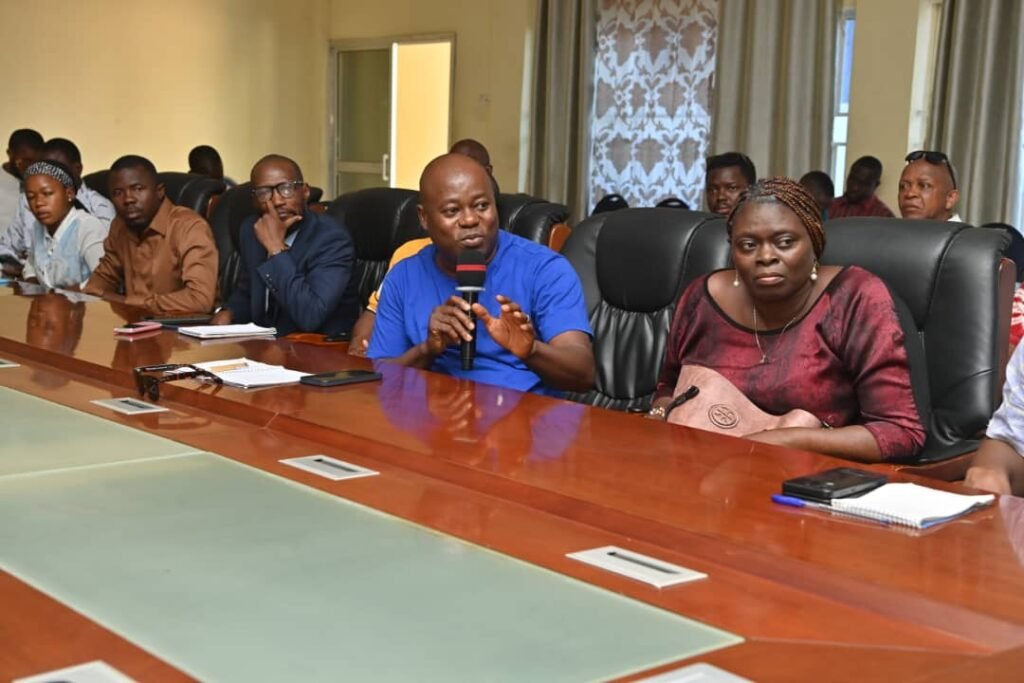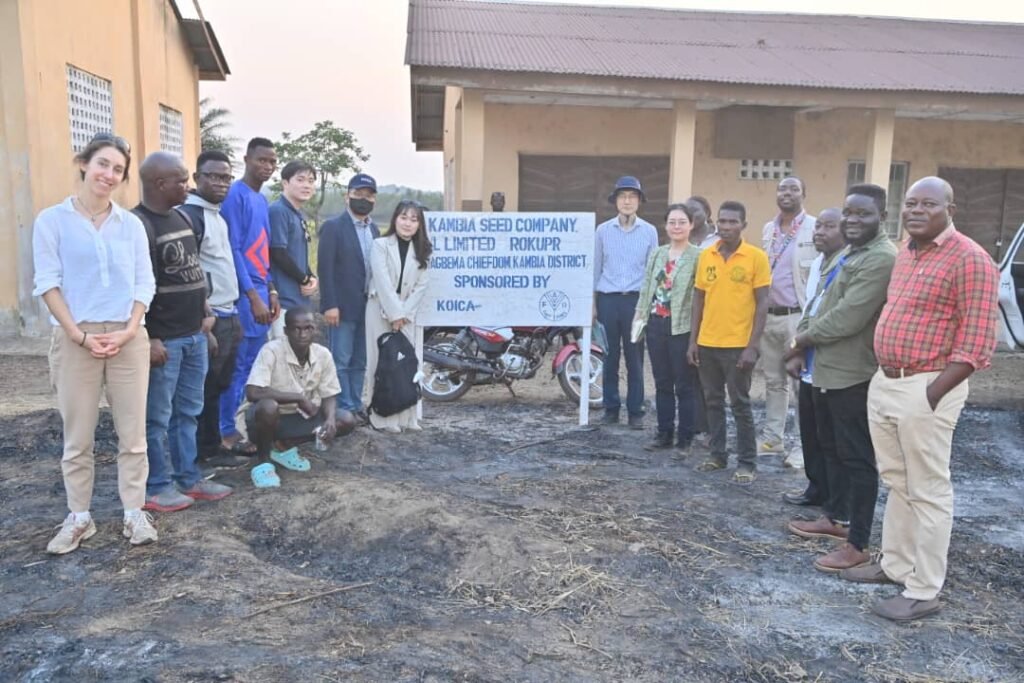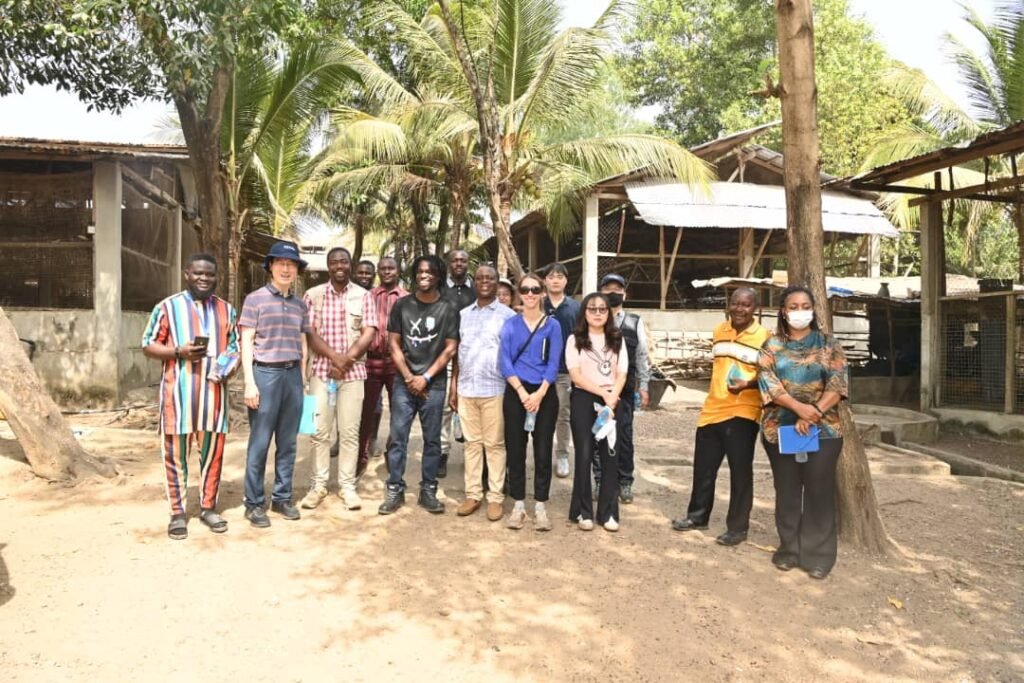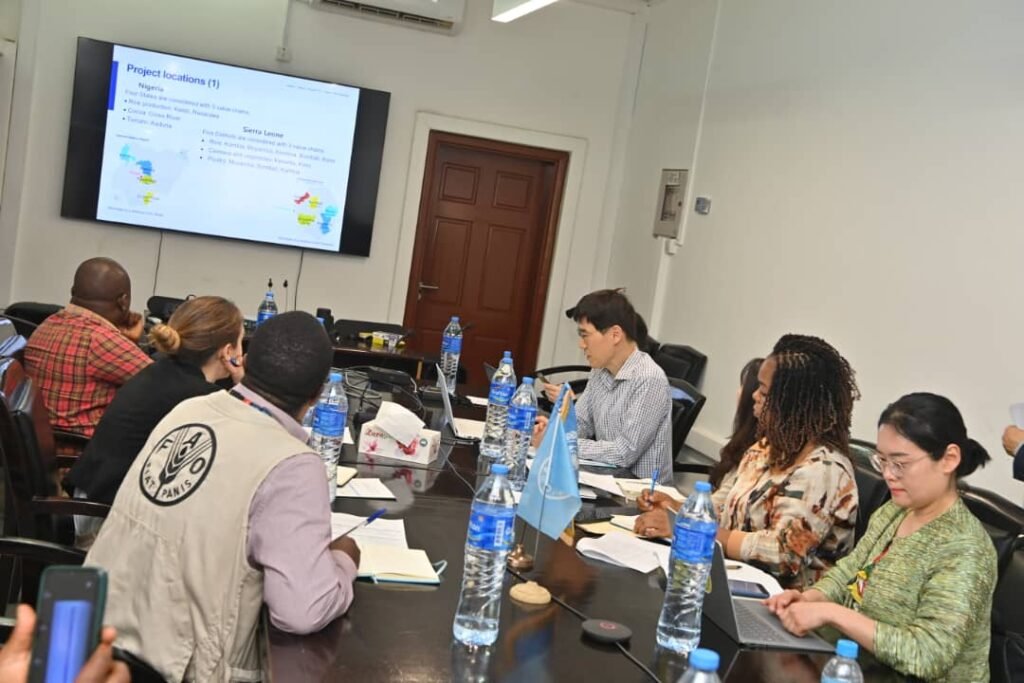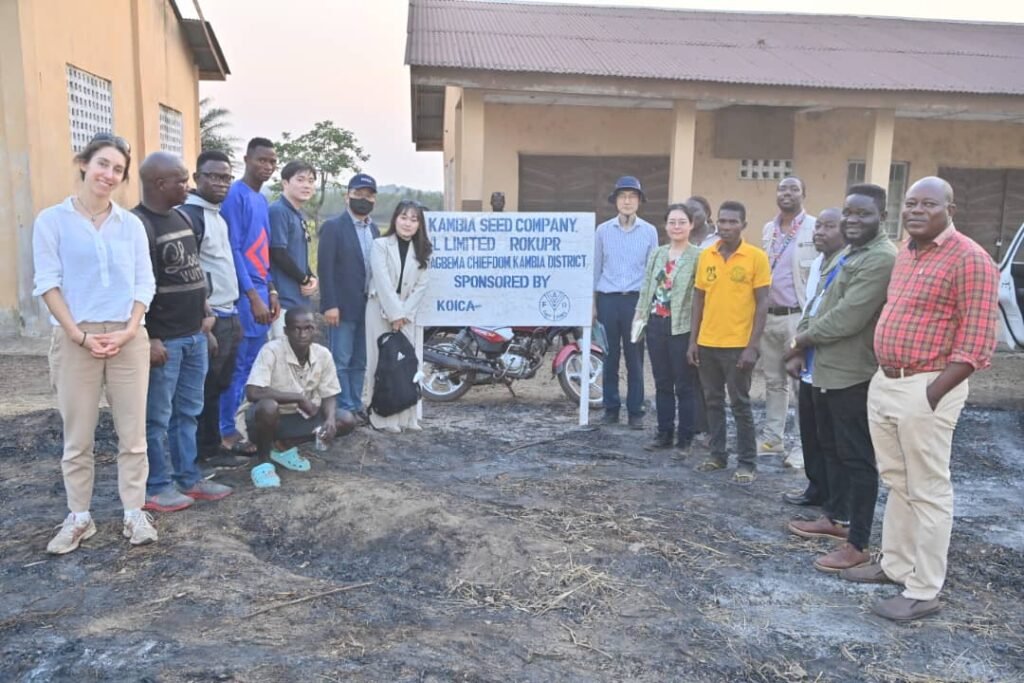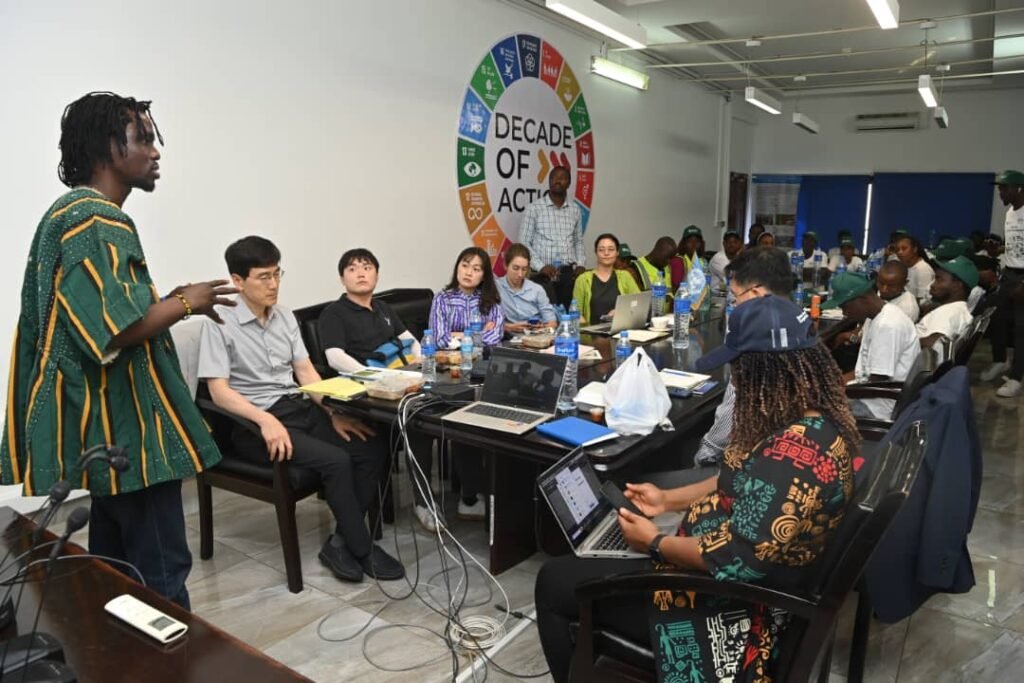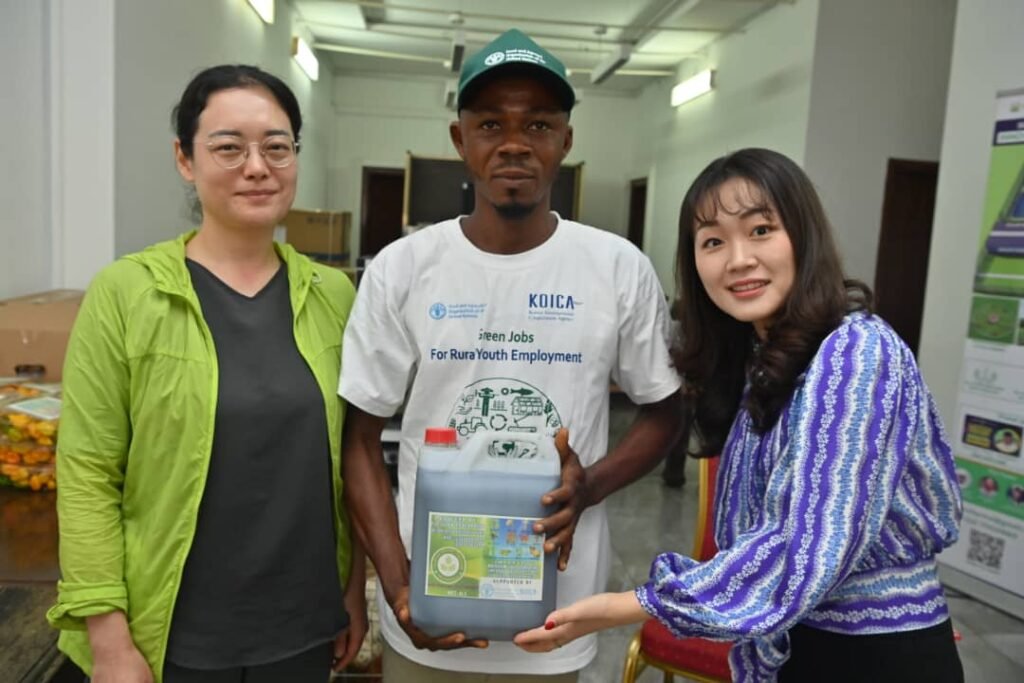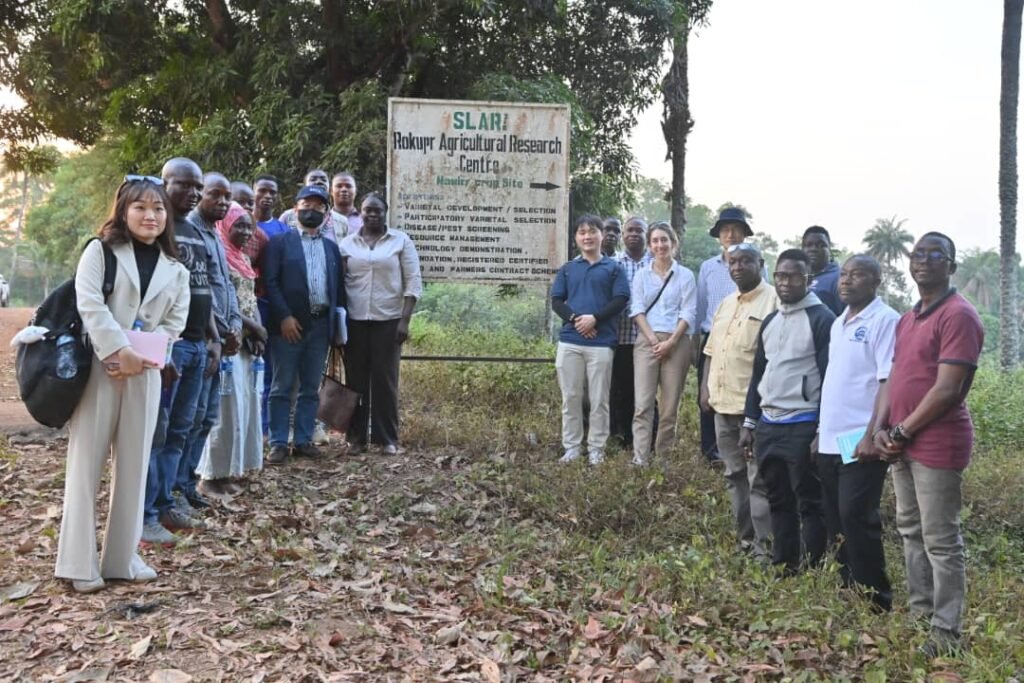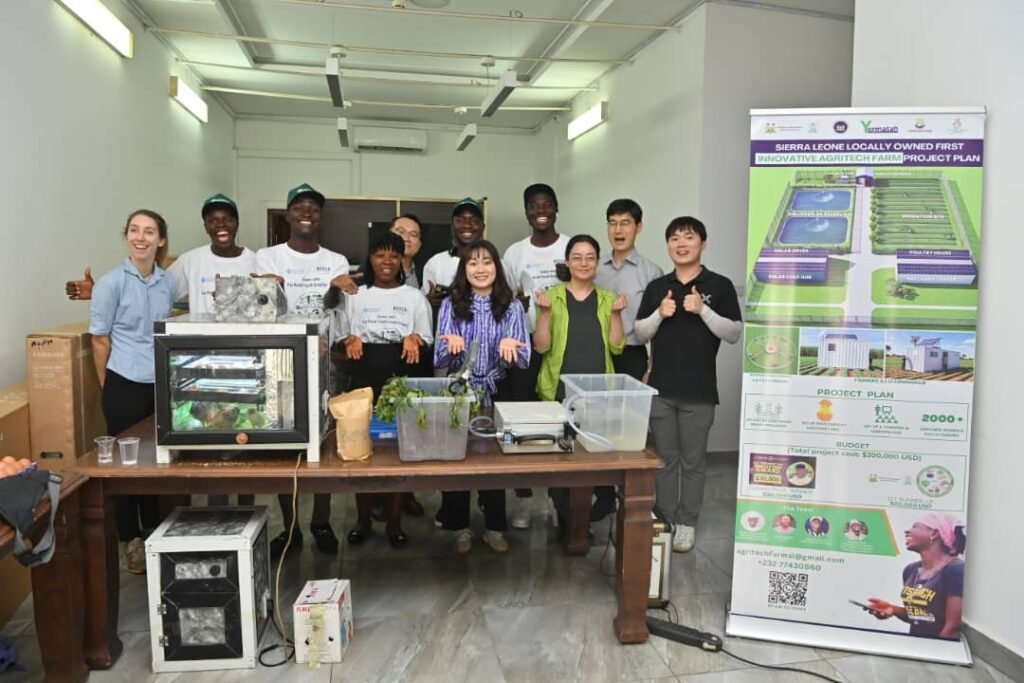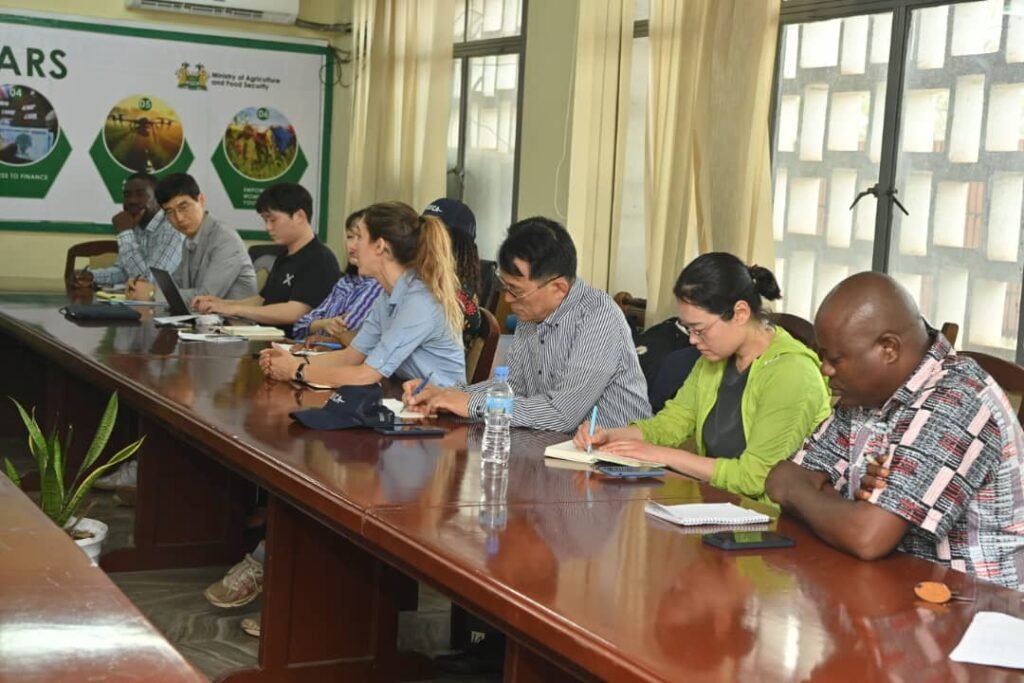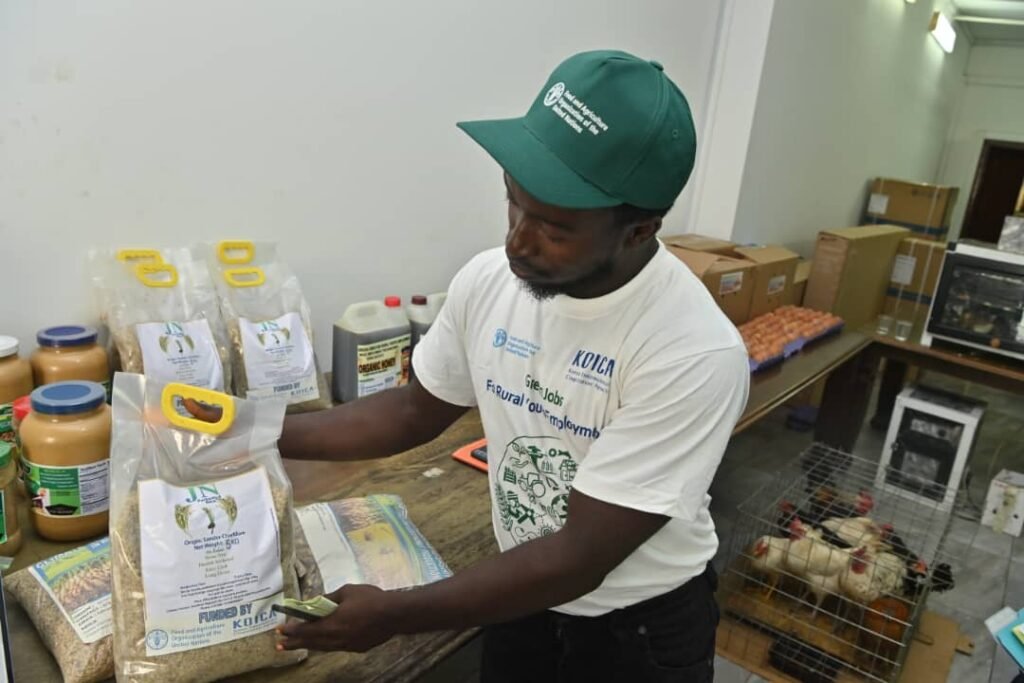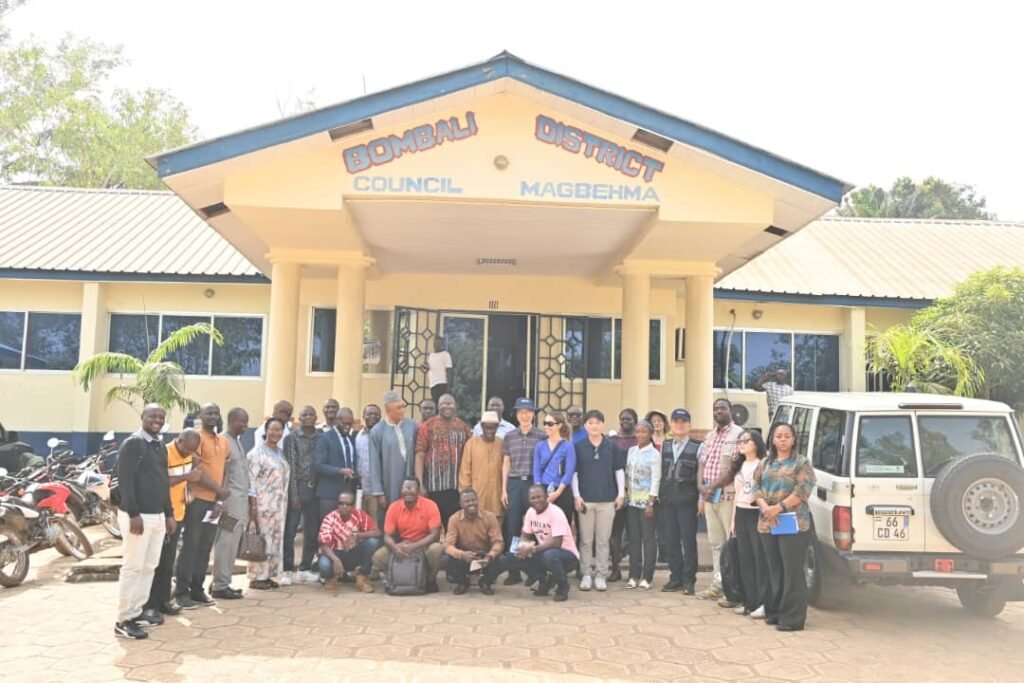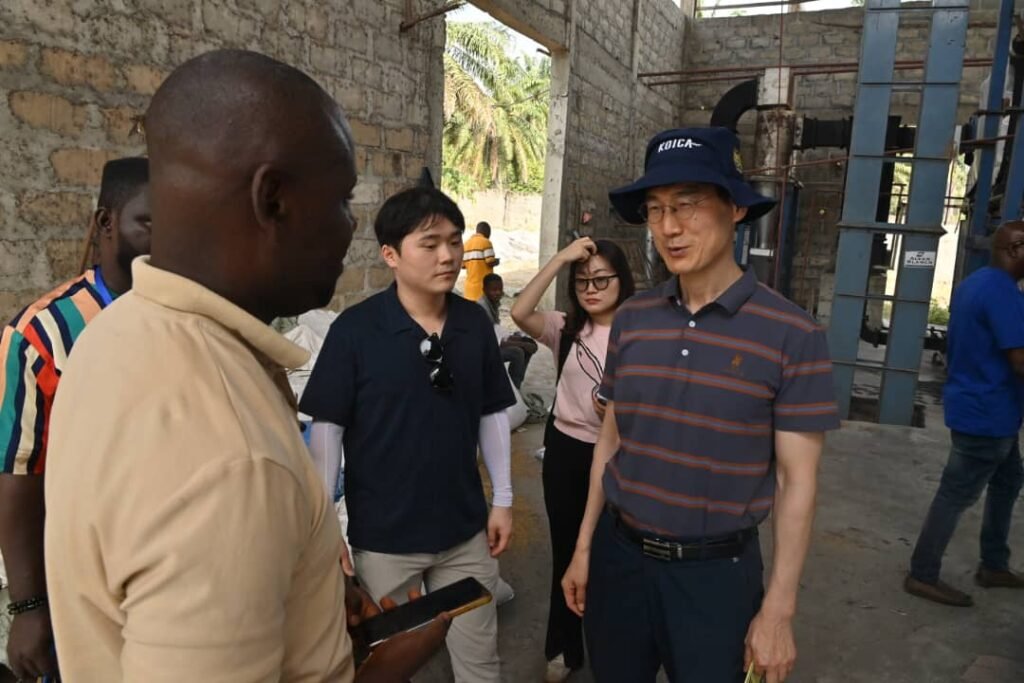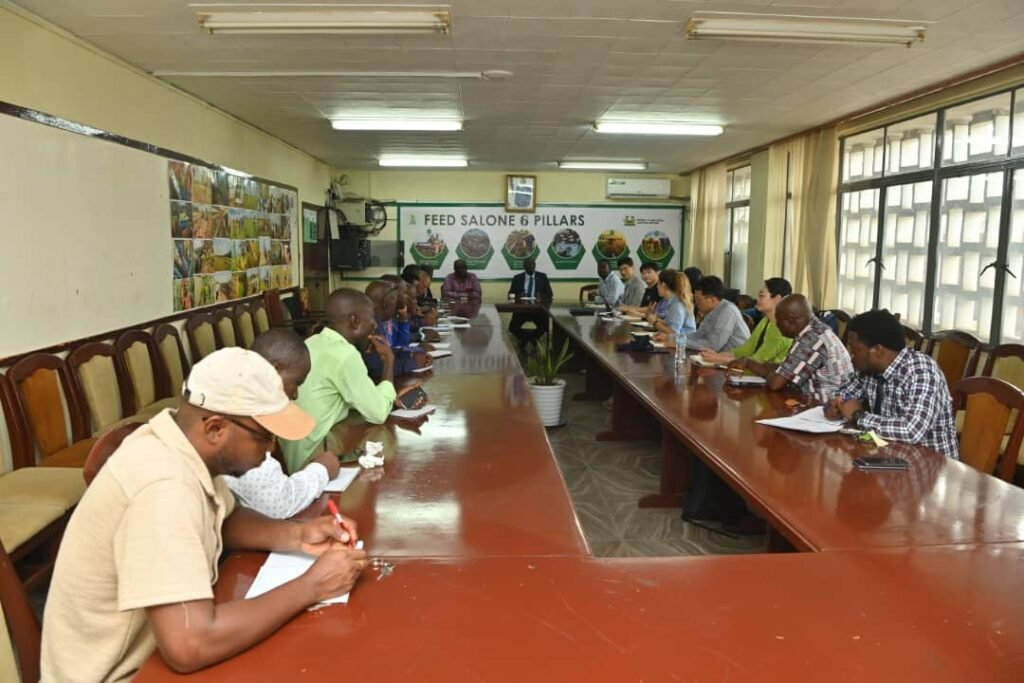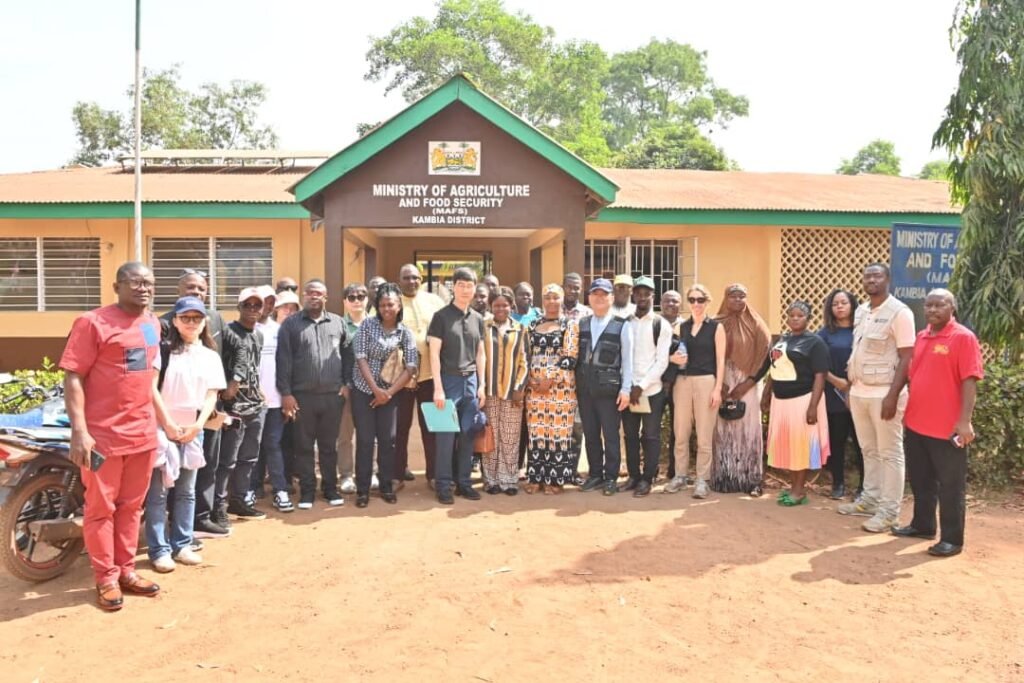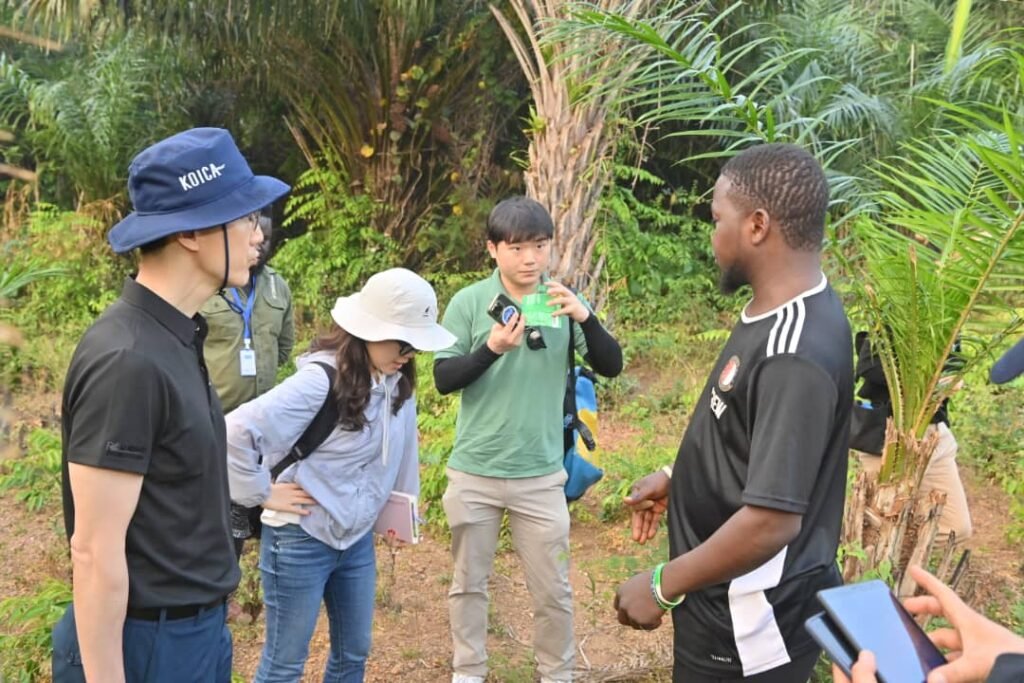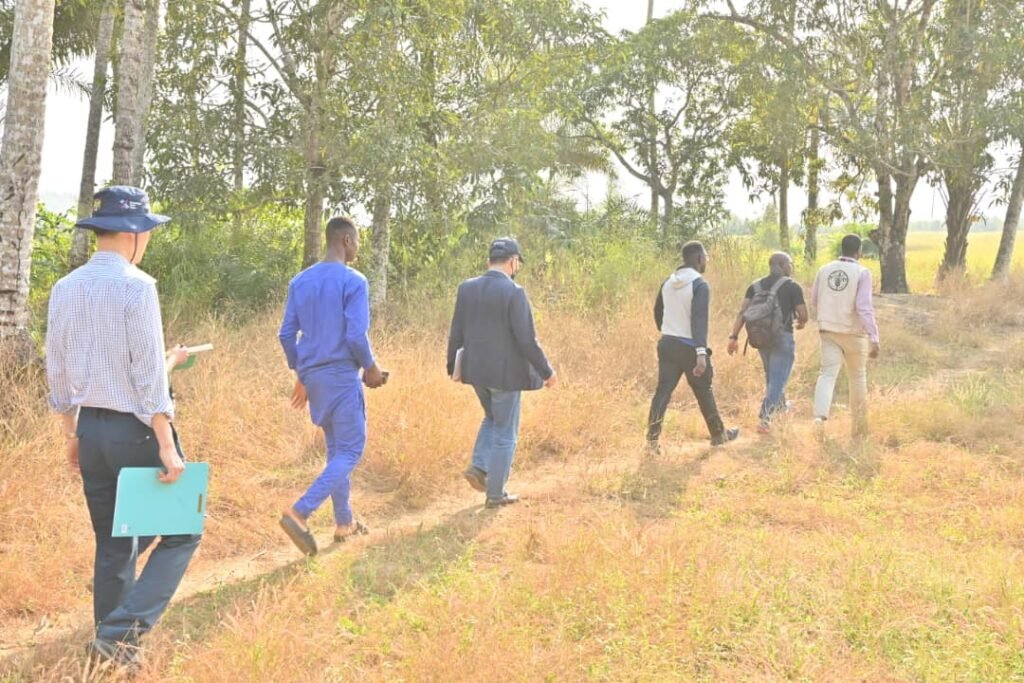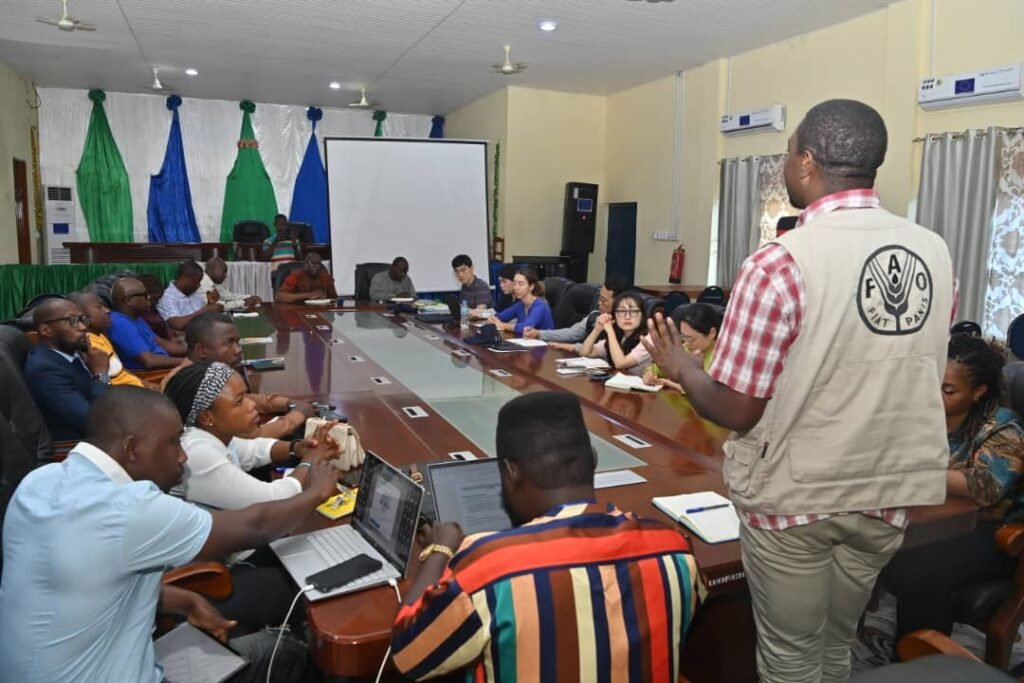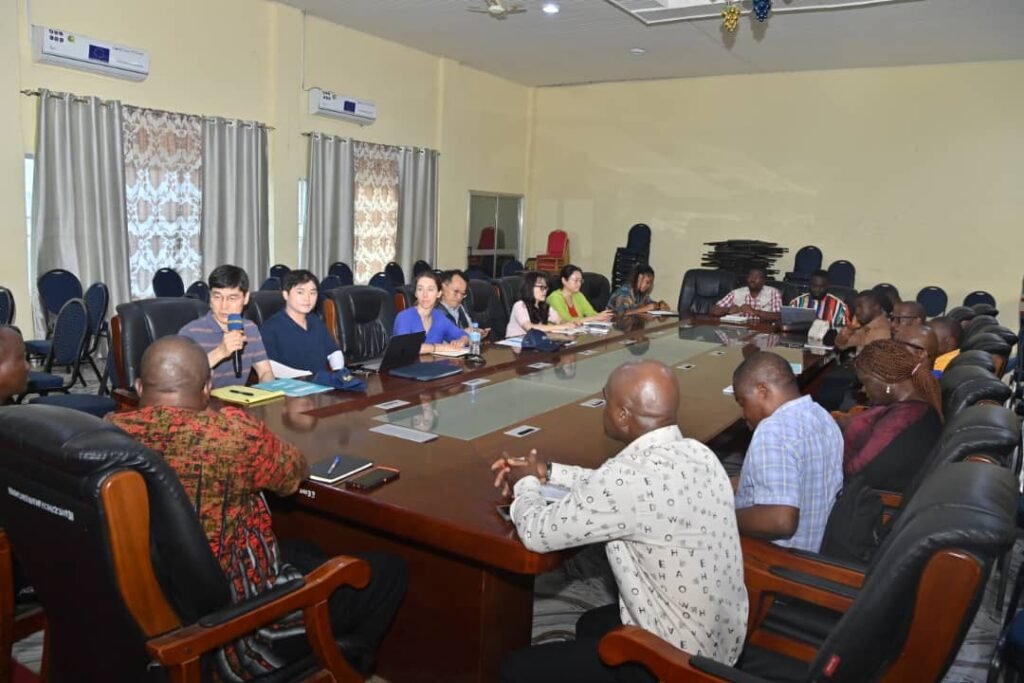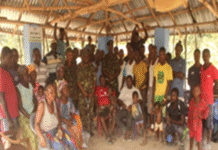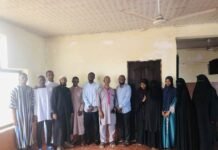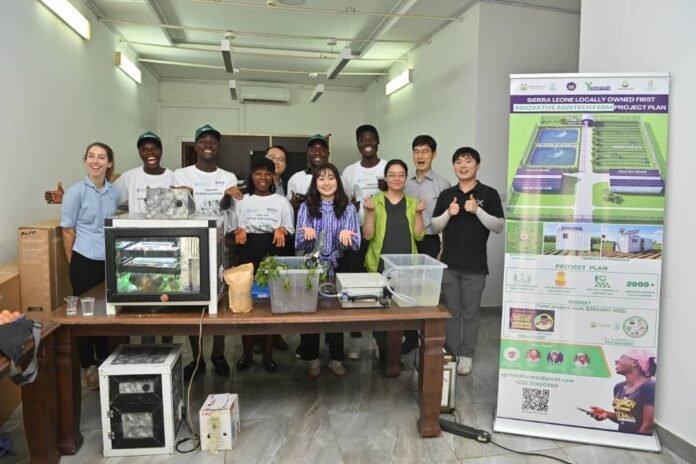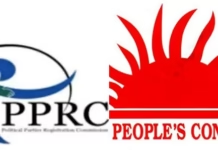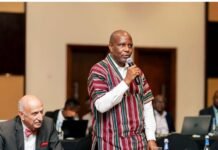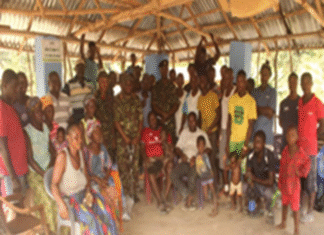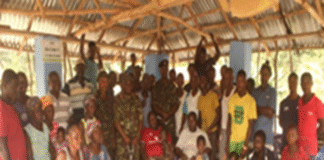In the quest to promote sustainable employment opportunities for rural youth in Sierra Leone, the Food and Agriculture Organization of the United Nations (FAO), and the Korea International Cooperation Agency (KOICA), have completed feasibility studies as part of funding requirements for the potential commencement of a phase II of the Green Jobs for Rural Youth Employment (GJR4YE) Project in Sierra Leone.
The five-day survey aimed to assess the successes and lessons learned from the first phase of the project, as well as identify key challenges faced by the youth in the region. The study also focused on value chains and dynamics of the green jobs sector, exploring employment and entrepreneurship opportunities, and potential areas for public-private partnerships. The study team met with various stakeholders, including the beneficiaries of the Wage Employment Program and Green Entrepreneurship Track under the first phase of the Green Jobs project. These individuals have been directly impacted by the initiative and were able to provide valuable insights into its effectiveness.
Additionally, the team met with representatives from the District Councils of Kambia and Bombali, who played a crucial role in implementing and supporting the project at the local level. The Sierra Leone Agricultural Research Institute (SLARI), Ministry of Agriculture and Food Security, and private sector partners such as the Mountain Lion Rice Processing Company, and the Big Things Poultry Farm in Makeni were also part of the discussions.
Jang Hee Im, team lead of the KOICA delegation remarked that the feasibility study highlighted the significant impact that the first phase of the Green Jobs project has had on the rural youth in terms of creating employment opportunities. According to him, the project has also helped to foster a culture of entrepreneurship in the region, with many young people now running successful agribusinesses amidst challenges like limited access to finance, inadequate infrastructure, and a lack of technical skills.
Harding Bockarie Wuyango, Assistant FAO Representative in charge of programs, remarked that one of the key takeaways from the study was the potential for public-private partnerships to further enhance the impact of the Green Jobs project. “By collaborating with the private sector, the project can benefit from their expertise, resources, and networks to create more opportunities for the rural youth in Sierra Leone”. He said.
Abdulai Amadu Bangura, National Project Coordinator, Green Jobs for Rural Youths Employment said, that because of the joint efforts of FAO and KOICA, the feasibility study provides valuable insights to inform the second phase of the Green Jobs project. “The findings will be used to refine and improve the project, ensuring that it continues to make a positive impact on rural youth employment and sustainable development in Sierra Leone”. Bangura said.
The FAO and KOICA’s feasibility study in Kambia and Bombali has provided a deeper understanding of the green jobs sector and its potential for the rural youth in Sierra Leone. This initiative is a step towards achieving a more sustainable and prosperous future for the country, and with the support of all stakeholders, the second phase of the Green Jobs project is bound to be even more successful.
About Green Jobs for Rural Youths Employment (GJ4RYE) Project Phase I
Phase I of the GJ4RYE project was funded by the Korea International Cooperation Agency (KOICA) and spans three countries—Sierra Leone, Zimbabwe, and Timor-Leste. In Sierra Leone, the project created green jobs for 65 young entrepreneurs and wage employment opportunities for 97 participants across five districts for two years. Moreover, the project enabled the establishment of three apiary sites in Kono, Kambia, and Kailahun districts to preserve community forests, generate additional income, and support sustainable forestry practices; built the capacity of 202 participants by training them in various agricultural value chains to improve knowledge and productivity; and supported 15 participants to enrol in universities, using stipends provided by the project to further their education.
For more information, please contact:
Mohamed Lamrana Jalloh
Communication Specialist
FAO Sierra Leone
Email: jalloh.mohamed@fao.org
Abdulai A. Bangura
National Project Coordinator GJ4RYE
FAO Sierra Leone
Email: abdulai.bangura@fao.org
